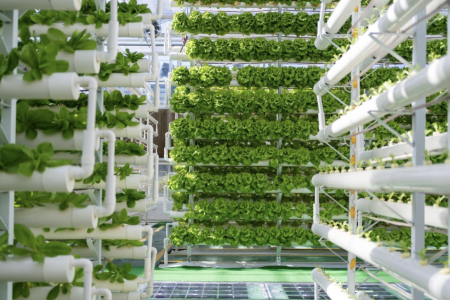How technology can help alleviate poverty in South-east Asia
Combining business acumen with social consciousness, entrepreneur Thanit Apipatana is offering a new roadmap to the region’s age-old problems
South-east Asia's economic landscape has transformed dramatically over the past two decades. Yet, the region still grapples with issues like poverty.
Says Mr Thanit Apipatana, a Bangkok-based entrepreneur and investor who has spent the past five years working with local businesses in the region: “While economic development has brought wealth and progress, we must not forget that hunger, malnutrition and substandard health conditions still exist in many countries.”
The 41-year-old suggests that the Covid-19 pandemic and climate change may have exacerbated these challenges, and notes that recent decades of growth and development could be at risk if innovative solutions are not introduced to drive advancement.
The key to addressing these challenges, he believes, lies in technology.
Drawing from his experiences advising and investing in tech-focused companies in the region, including Singapore-based proptech start-up Mogul.sg and Thai-based microbiology lab Life Below Labs, Mr Apipatana is suggesting an alternative approach to mitigate poverty in South-east Asia.
He believes that tech-driven solutions could bring about sustainable change at scale.
Harnessing technology for food security and education
Take for example, food security, which Mr Apipatana firmly believes can be addressed through the power of technology.
“To feed our populations, we must think about how to make food cheaper and more plentiful. We can potentially achieve this with better technology, by producing more fertilisers and better seeds,” he says.
His stance puts him at odds with advocates for a return to traditional ways of farming, which he views may not be as efficient for large-scale food production.
Instead, Mr Apipatana supports technologies like genetic modification and novel farming ideas like hydroponics and aquaculture. According to him, these methods can significantly increase crop yields and resilience.

Beyond agriculture, he also sees education as crucial to breaking the cycle of poverty.
“I believe that improving basic education is the key to reducing poverty and hunger in the long term,” he says. “The widespread use of mobile phones, internet availability and artificial intelligence (AI) has made this goal more achievable.”
He envisions a future where AI-powered educational tools, accessed through mobile devices, can bring quality education to even the most remote areas of South-east Asia.
Rethinking local priorities over global ones
Mr Apipatana’s perspective is different from the current emphasis on global initiatives, particularly in climate policy. His focus is towards more immediate, local concerns.
“When it comes to our money, I believe we should first and foremost spend it on more effective and sound programmes that can help to solve more pressing problems at home,” he says.
This view extends to carbon-neutral policies like net-zero emissions targets, which he thinks may be too costly for developing nations in South-east Asia.
However, Mr Apipatana is not dismissing climate concerns entirely. “Our ability to respond to climate-related disasters has improved dramatically over the past century, thanks in large part to technological advancements,” he adds.
He believes this progress can guide the approach to climate challenges and balance global goals with local needs.
Educating for better health
When it comes to public health, Mr Apipatana still sees significant challenges facing the region. Once again, his strategy for tackling these issues leverages education to create lasting change.
“Education plays an important role in empowering individuals to make informed choices about their health,” he explains.
“Raising awareness of chronic diseases and their causes not only influence consumer behaviour and encourage healthier lifestyles, but also pave the way for a future where communities prioritise their health.”
Mr Apipatana’s outlook to public health challenges mirrors his broader philosophy on poverty alleviation – it starts with the individual and ripples outward.
“As a business owner and entrepreneur leading various teams of people in South-east Asia, I believe that taking care of the people closest to you is the most important thing,” he says.
For more information, reach out to Mr Apipatana at thanit@mogul.sg

Get The New Paper on your phone with the free TNP app. Download from the Apple App Store or Google Play Store now

